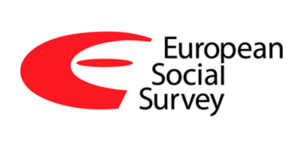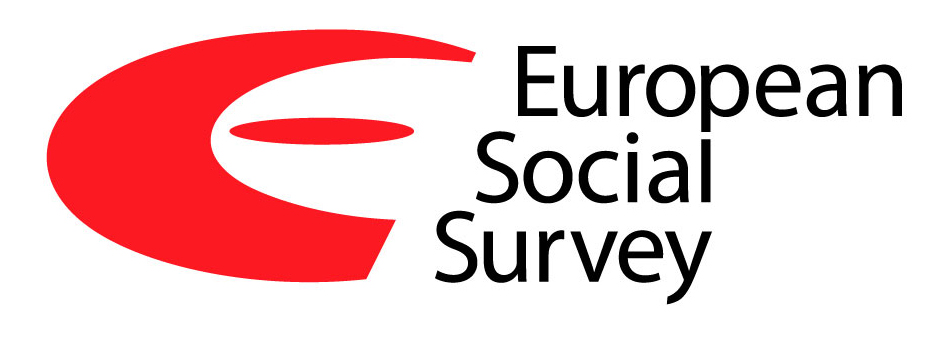
The European Social Survey Sweden is a member of ESS ERIC (European Research Infrastructure Consortium) that has collected and distributed micro data biannually since 2002. Every second year individuals are interviewed face-to-face about their attitudes and behavior towards, for example, immigration, democracy, equality, media and health care, participation in the civil society, trust, health, social networks, and psychological predispositions. ESS is the most important and reliable source of information concerning micro data for scientists, mass media, political decision makers and analysts. Factors like the spectrum of the examined topics, the solid guarantee of quality, standardization, documentation, the swift production of data and, most importantly, the unrestricted access to data has contributed to the success of ESS.
ESS has three overarching scientific goals. First, to chart stability and changes in the social structure, conditions and attitudes in Europe and to interpret how these changes are affecting Europe’s social, political, and moral fabric. The majority of the questions are therefore repeated in every round of ESS. Many changes in attitudes and behavior take time, which means that it is only now that we start to witness the full significance of ESS as a tool for understanding social change. To enable both the measurement of change as well as securing the measurement of current topics ESS contains two parts. One part is repeated in every round of ESS (the core module) and one part contains two modules covering current societal and research topics (rotating modules). The core module focuses on a range of different themes that are largely the same in each round, and these are:
- Media and social trust
- Politics
- Subjective well-being, social exclusion, religion, national and ethnic identity
- Gender, year of birth and household grid
- Socio demographics
- Human values
The rotating modules are dedicated to specific themes, which are sometimes repeated in later rounds of the ESS:
- Gender in Contemporary Europe: Rethinking Equality and the Backlash (ESS 11)
- Social Inequalities in Health and their Determinants (ESS11)
- Digital Social Contacts in Work and Family Life (ESS10)
- Understandings and Evaluations of Democracy (ESS10)
- Justice and fairness (ESS9)
- Timing if life (ESS9)
- Attitudes to Climate Change and Energy (ESS8)
- Welfare Attitudes (ESS8)
- Immigration (ESS7)
- Social Inequalities in Health (ESS7)
- Personal and Social Well (ESS6)
- Understandings and Evaluations of Democracy (ESS6)
- Work, Family and Well-being (ESS5)
- Trust in Police and Criminal Courts (ESS5)
- Ageism (ESS4)
- Welfare Attitudes (ESS4)
- Personal and Social Well-being (ESS3)
- Timing of Life (ESS3)
- Family, Work and Well-Being (ESS2)
- Health and Care Seeking (ESS2)
- Economic Morality (ESS2)
- Citizenship, Involvement and Democracy (ESS1)
- Immigration (ESS1)
The second overarching ESS goal is to achieve and spread higher standards of rigor in cross-national social measurement. The aim is to produce the objectively best survey data combined with an unprecedented content multiplicity. It is only with the highest quality and most topic extensive data that we can tackle both major societal challenges as well as other research questions.
The third goal of ESS is to introduce soundly based indicators of national progress based on citizens’ perceptions and judgments of key aspects of their societies. Indicators that deal with, for example, equality, crime, and happiness are constructed to work complementary with established economic measures like GDP. Researchers, politicians, and analysts can use these indicators to compare countries and regions or groups of individuals in an established way.
European Social Survey ERIC
European Research Infrastructure Consortium
European Social Survey ERIC is a European research infrastructure consortium (ERIC). A research infrastructure is a scientific tool or resource that researchers, in many different fields of research, need in order to conduct high-quality research.
The European Social Survey is an academically driven cross-national survey. The Director of the ESS ERIC is Professor Rory Fitzgerald and the ESS ERIC Headquarters are located at City, University of London, United Kingdom. The Director is supported in the design and implementation of the ESS ERIC Work Programme by the Core Scientific Team (CST), comprising seven institutions. These are:
- Norwegian Centre for Research Data – NSD, Norway
- Leibniz Institute for the Social Sciences – GESIS, Germany
- The Netherlands Institute for Social Research/SCP, The Netherlands
- Universitat Pompeu Fabra, Spain
- University of Leuven, Belgium
- University of Essex, United Kingdom
- University of Ljubliana, Slovenia
Sweden is a member since 2012 and the Swedish node is part of CORS.

Access to data from the ESS
How can I get access to the data and documentation from the European Social Survey?
You can find all the information you need about how to access data and documentation at ESS ERIC:s website.
Contact Us
Whether you have a question or need support concerning ESS, we would be happy to help you!
Who is working with ESS in Sweden?
The Swedish node ESS-S is located at the Department of Sociology at Umeå University. National coordinator is Professor Mikael Hjerm.
Mikael Hjerm
National coordinator ESS-S
+46 (0)90 786 95 17
Anna Brydsten
Researcher
+46 (0)90 786 91 34
